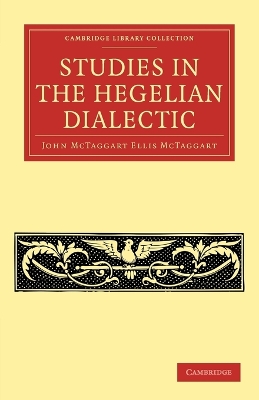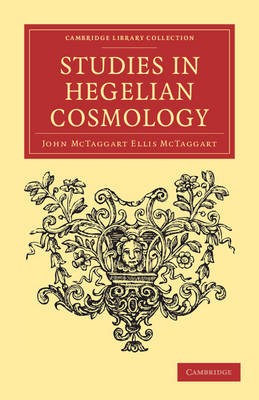Cambridge Library Collection - Philosophy
2 total works
What is the nature of dialectic according to Hegel? And what is achieved by its means? These are the main questions that John McTaggart (1866-1925) seeks to answer in this work, first published in 1896. At the beginning of the twentieth century, the Cambridge-educated philosopher and fellow of Trinity College enjoyed a prominent position within the circle of idealist philosophers, and was regarded as one of England's leading Hegel scholars. Although a proponent of the German philosopher's dialectical thinking in general, McTaggart was not uncritical of Hegel's philosophy and objected to his application of abstract thought. In this work, McTaggart not only gives the reader a thorough introduction to Hegel's understanding of the dialectic method but also exposes a number of points on which he considers Hegel's teaching to be inaccurate: one of these is Hegel's insistence that evil is merely a delusion.
John McTaggart (1866-1925) was a Cambridge philosopher, famous for his metaphysical theory that time is not real and that temporal order is an illusion. Although best known for his contributions to the philosophy of time, McTaggart also spent a large part of his career expounding Hegel's work. In this book, first published in 1901, he discusses which views on a range of topics in metaphysics and ethics are compatible with Hegel's logic and idea of 'the Absolute'. Some early work on theories for which McTaggart later became well known can be found in this work, such as his beliefs that humans are immortal, that the Absolute is not in any sense a person, and that love is the relation that binds people together. In this book he also discusses punishment, sin, morality and whether Hegel could be considered a Christian.

